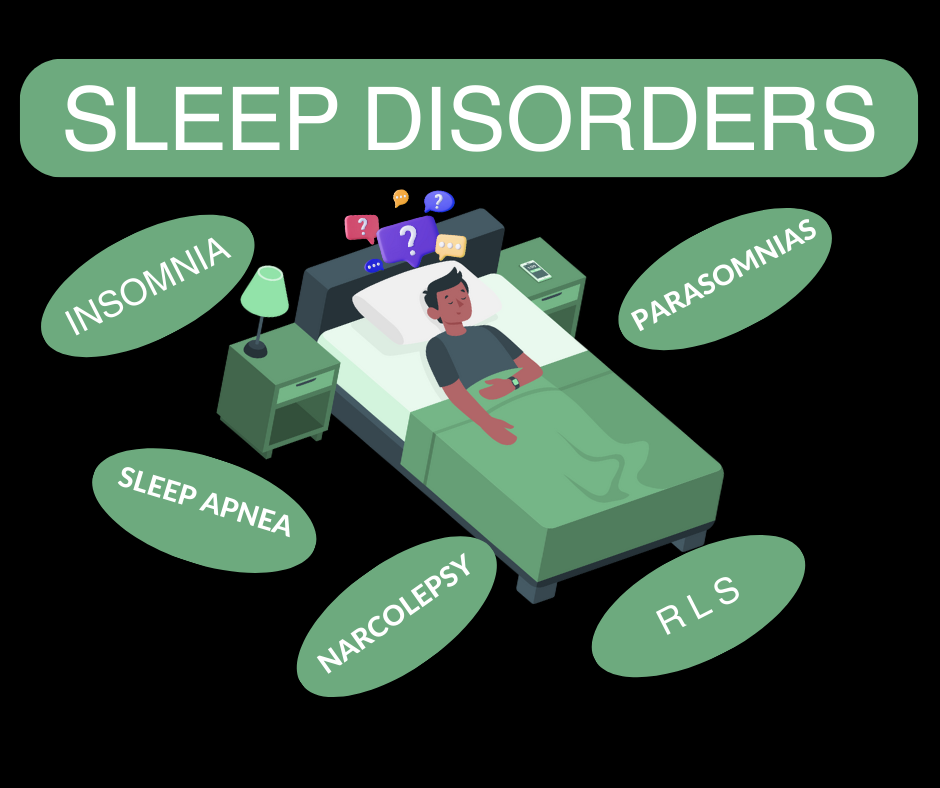
9JA Telemedicine


SLEEP DISORDERS
Key Words:
- Introduction
- Insomnia
- Sleep Apnea
- Restless Legs Syndrome (RLS)
- Narcolepsy
- Parasomnias
- Conclusion
Introduction:
Sleep is essential for overall health and well-being, yet many individuals struggle with sleep disorders that disrupt their rest and quality of life. Understanding these disorders and seeking appropriate treatment is crucial for optimal health. Let's explore common sleep disorders, their causes, symptoms, and available treatments.
If you need any advice click now?--9JA
Insomnia:
Insomnia, or sleeplessness, is when you have trouble falling asleep, staying asleep, or getting good sleep quality. It might make you wake up too early and struggle to go back to sleep. This can affect what you do during the day, making you feel tired and sleepy. Insomnia can also make you feel less energetic and moody.
If you need any advice click now?--9JA
Sleep Apnea:
Sleep apnea is a potentially serious disorder characterized by pauses in breathing or shallow breathing during sleep. Common symptoms include loud snoring, gasping for air during sleep, and daytime sleepiness. Obesity, enlarged tonsils, and structural abnormalities in the airway can contribute to sleep apnea. Treatment options include continuous positive airway pressure (CPAP) therapy, oral appliances, and lifestyle changes.
If you need any advice click now?--9JA
Restless Legs Syndrome (RLS):
RLS is a neurological disorder characterized by uncomfortable sensations in the legs, often described as tingling, crawling, or itching, leading to an irresistible urge to move the legs. Symptoms typically worsen at night, affecting sleep quality. Iron deficiency, kidney failure, and certain medications can contribute to RLS. Treatment may involve lifestyle changes, medication, and managing underlying conditions.
If you need any advice click now?--9JA
Narcolepsy:
Narcolepsy is a sleep disorder characterized by excessive daytime drowsiness, often leading to sudden and uncontrollable episodes of sleep. Individuals affected by narcolepsy struggle to maintain wakefulness for extended periods, frequently experiencing abrupt bouts of sleepiness. These unexpected sleep episodes can significantly disrupt their daily activities and routines."
If you need any advice click now?--9JA
Parasomnias:
Parasomnias are sleep disorders that happen between being fully asleep and awake. During parasomnias, someone might do things like walk, talk, or eat without being fully aware because their brain is only partially awake. Examples include sleepwalking, night terrors, and REM sleep behavior disorder (RBD), where people act out their dreams.
If you need any advice click now?--9JA
Conclusion:
Sleep disorders can significantly impact quality of life, affecting physical, emotional, and cognitive functioning. It's essential to recognize the signs and symptoms of sleep disorders and seek appropriate medical evaluation and treatment. With the right interventions, individuals can experience improved sleep quality and overall well-being. Remember, a good night's sleep is essential for optimal health and vitality.
If you need any advice click now?--9JA